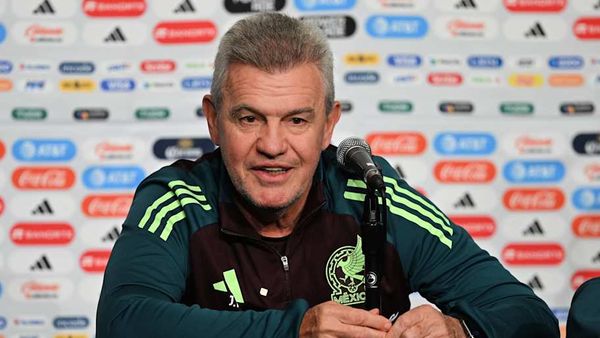
Colin Ross writes: The controversy concerning the Voice has highlighted the reverence that many people give the constitution, as if all wisdom was consolidated in that document (“A No vote will be Australia’s Trump moment”). In truth, it was cobbled together to achieve federation, virtually ignored First Nations peoples, and was at a time when the remarkable social and technological changes over the next 120 years would have been unimaginable.
Some of the constitution is no longer fit for purpose, and we should have no hesitancy to change or add to it to reflect the nation as it is today.
Steve Devir writes: The Yes vote needs to do some plain speaking. The referendum is the way an inherited Westminster system can deal with and be compatible with a 65,000-year-old culture, i.e. it is merely a process by which the existing system can create the ability of a representative body (Voice) to form.
This will be in the same way as the current constitution arrived at a legal system and hierarchy of courts when there was no need for a High Court — the allowance was made that in the future there might or would be.
The simplest way to understand and hence portray the Voice to Parliament is to tell people what it will be: a representative body of all Indigenous peoples selected by all Indigenous peoples. So whatever and whenever the combined First Nations peoples arrive at its form, that body, which represents them, ought to be the Voice:
- One person or group should not determine the form or boundaries of the brief;
- It ought not to be an obstacle to truth-telling and treaty decisions and negotiation in the interim;
- Once the allowance is made, which is all the referendum provides, then let those First Nations peoples create that which best allows for their representation.
Let’s not complicate things.
Lachlan Williams writes: Let’s suppose the federal government held a referendum asking Australia to vote Yes or No to a simple proposal: a group of unnamed and unelected people would be able to roam the halls of Parliament House with full access to every democratically elected representative so they can present their thoughts/wishes/demands on any subject they care to mention, and we won’t know who they are, to whom they speak, nor what they speak about.
I reckon most Australians would respond to that proposal with a “No way!” Yet that’s what we call parliamentary lobbying.
Instead, voters are being given the opportunity to enshrine in our constitution a truly transparent system of lobbying (for want of a better word). I reckon most Australian voters should respond “Hell yeah!” for that. I know I will.
Jim Spithill writes: Imagine looking in the mirror the morning after the Indigenous Voice to Parliament referendum. If you voted Yes and the result is Yes you’ll be celebrating with renewed hope for the nation. But if you voted No and the result is No, what will there be to celebrate? Will you be able to look in the mirror? How will the nation be able to face itself?
Ian Ossher writes: The No campaign is extremely depressing and is continuing to deaden the minds of Australians into a negative mindset around anything and everything related to Indigenous emancipation from the shackles of white privilege. The lies and obfuscations are criminal in their intent, never mind ethically and morally corrupt.
When will campaigners for the Yes start ramping up the importance of cutting the naysayers and their lies down and give the Australian public a “straight speak” understanding with all the positivism they can muster to ensure their message is heard clearly, simply, factually and effectively.
Kate Barton writes: “If you don’t know vote No” is the slogan against the referendum. That is reminiscent of a time-honoured statement of Noam Chomsky: “People not only don’t know what’s happening to them, they don’t even know that they don’t know.”
As one who knows, I am voting Yes.
Brian Ede writes: I find much of the verbiage surrounding the Voice debate extremely frustrating. Most Australians believe First Nations peoples should be recognised in our constitution. It is a source of pride and wonder that our country has been continuously occupied and managed for more than 60,000 years. Linking the last 250 years into that mind-boggling period gives us substantial heft as a nation.
Few people who have any experience in the area dispute that the design and delivery of services are best placed in the hands of people who understand and share the culture and lives of the clients. The problem is this thing called the Voice. To me it is simply that, a means by which First Nations peoples can have a say, whether it is accepted or not. This Voice will not be able to be silenced. For more than 50 years there have been attempts to have such a thing with no success.
That is the beauty of constitutional entrenchment, the format of the body can and will change as it tackles the difficulties of effectively representing so many disparate peoples. It must be allowed to find its way. Those who say the final “perfect” structure must be identified at this stage are naive or mischievous. Just look at the centuries of development our Anglo-Saxon forebears took to get from Magna Carta to today.
A Yes vote will be the start of a long road, but it is a road that must be travelled.
Alex Hallamore writes: I write as one of the great unwashed regarding the No vote. Your article sums up our principal issue in Australia being the ultra-conservative media in all its forms led by the Murdoch/Stokes/Costello triumvirate media gangs. Profiteering is what drives them, not any high-minded ethics of community values.
Until such time as a truly balanced system of taxation enables the nation to redistribute wealth across all sectors of society, we’ll not be able to call ourselves a nation. The flag-waving, tub-thumping right-wingers of the fascist gene pool are not of any solid community-minded idealism, more the puppets of the earlier triumvirate.
Peter Barry writes: Now the Electoral Commission pamphlet has been published, virtually everything that can be said in favour or against the Voice has been uttered (“Referendum pamphlets a ‘missed opportunity’ for truth in political advertising laws, critics say”). At this point, most people will have consciously or subconsciously decided and will put the proposal to the back of their minds until October.
Haranguing the No voters is unlikely to change their view. Desperately trying to persuade the uncommitted from this point on will have little effect as they are likely to go with the flow. The issue is of minimal concern to most people in the current economic climate. The referendum is now effectively done and dusted and, sadly, probably lost.







